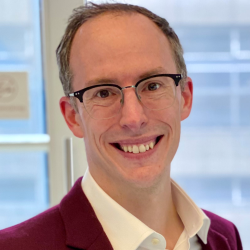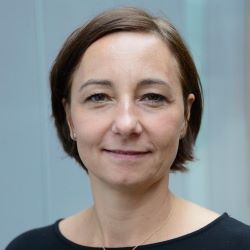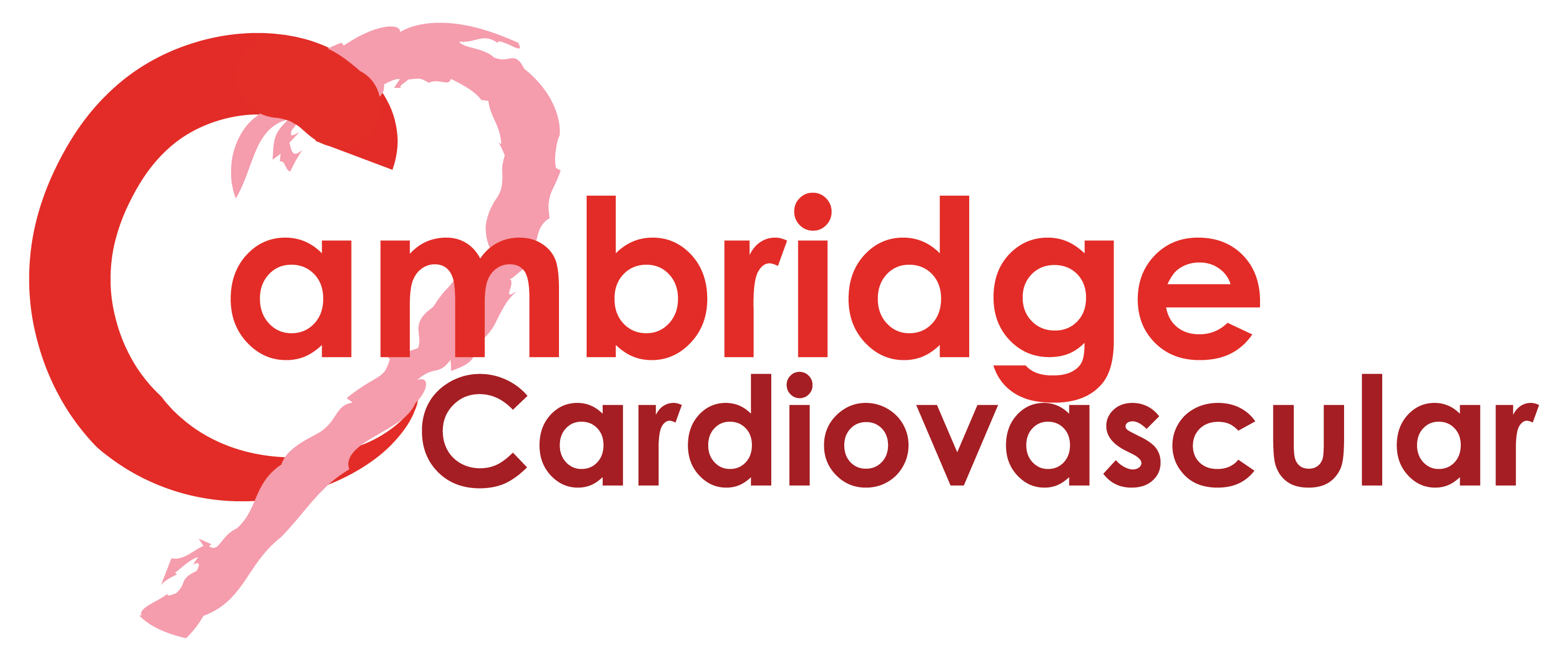Cambridge Cardiovascular / BHF Cambridge CRE annual symposium 2024 |
|
Keynote speaker |
|
|
Niels Peek, THIS Institute Prediction Technologies in Cardiovascular Medicine: Past, Present, and Future |
|
| I am Professor of Data Science and Healthcare Improvement at THIS Institute (The Healthcare Improvement Studies Institute) in the Department of Public Health and Primary Care, University of Cambridge. My background is in Computer Science and Artificial Intelligence, and my research focuses on translational data science for clinical risk prediction, personalised and precision medicine, patient safety, and multimorbidity. Previously I was based at the University of Manchester, where I led the Christabel Pankhurst Institute for Health Technology Research and Innovation, a partnership of academic, healthcare, industry and public sector organisations that aims to accelerate the translation of new technologies into healthcare practice. I am delighted to speak at the Cambridge Cardiovascular Annual Symposium this year. It will be a great opportunity to get to know the cardiovascular research community in Cambridge and familiarise myself with the fantastic work that is going on here. | |
Session 1: Rhythm Disorders |
|
|
Peter Charlton, Department of Public Health and Primary Care, Cambridge University Using wearables to detect atrial fibrillation in daily life |
|
| ..... | |
|
Jonathan Mant, Department of Public Health and Primary Care, Cambridge University
Screening for Atrial Fibrillation with ECG to Reduce stroke– the SAFER trial |
|
| ..... | |
|
Greg Mellor, Royal Papworth Hospital Quinidine for the treatment of Idiopathic Ventricular Fibrillation |
|
| ..... | |
Session 2: Imaging and the application of AI |
|
|
Smriti Agarwal, CUH NHS Foundation Trust
AI in acute stroke - promises and challenges |
|
|
Smriti is a consultant neurologist at Addenbrooke’s. She did an MD at Cambridge in stroke imaging (perfusion CT and functional MRI) studying physiological determinants of tissue outcome in stroke and language networks in healthy ageing. Subsequently, she completed a post-doc fellowship in Sydney in cognitive neurology. She leads the NIHR Hyperacute stroke research centre trials team at Cambridge. She is on the steering committee of the European stroke organisation (ESO) trials alliance, serves on the editorial board of Neuroimage and has been recently appointed to the ESO AI committee. Her current work, with James Rudd, Angela Wood and Carola Schönlieb, focuses on developing machine learning methodology to refine outcome prediction from acute stroke treatments. |
|
|
Jason Tarkin, Department of Medicine, Cambridge University New imaging modalities to detect cardiovascular inflammation |
|
| Jason Tarkin is a Wellcome Clinical Research Career Development Fellow at the Heart & Lung Research Institute of the University of Cambridge, and an Honorary Consultant Cardiologist with an imaging sub-specialty. He is also a Junior Research Fellow at St Catharine’s College, Cambridge, and the UK Principal Investigator for the BHF-DZHK-DHF International Research Partnership ‘PLAK-TALK’ about intercellular communication pathways in atherosclerosis. In addition, he is a Committee Member of the British Society of Cardiovascular Imaging, the British Atherosclerosis Society, the BCS Ischaemic Heart Disease Working Party, the BHF Clinical Research Collaborative, and the BHF-MRC Cardio-IMID network. He is also on the Editorial Board of Circulation Cardiovascular Imaging. Jason was awarded summa cum laude with honors in Biology from the University of New Hampshire in 2003, graduated with Distinction in Medicine from St. George’s, University of London in 2008, and received his PhD from the University of Cambridge in 2017. Dr Tarkin’s research has pioneered the use of somatostatin receptor PET imaging of inflammation in atherosclerosis, large vessel vasculitis, and other cardio-inflammatory diseases. His research group applies novel multi-modality imaging approaches, coupled with deep immune profiling and interventional studies, to discover new avenues for improved diagnostics, risk-stratification, and therapeutics in cardiovascular disease. | |
|
Jonathan Weir-McCall, Department of Radiology, Cambridge University Big data and AI in cardiac imaging: Making a difference? |
|
| Jonathan is a University Lecturer at the University of Cambridge and an Honorary Consultant Cardiothoracic Radiologist at the Royal Papworth Hospital. His research interests lie in the use of cardiovascular CT and MRI for better understanding how these can be used to improve patient treatment and outcomes in structural and coronary artery disease. He has authored >130 peer reviewed publications, co-authored the SCCT guidelines on the role of CT in the assessment for transcatheter aortic valve insertion, and the BSCI/BSTI guidelines on the reporting of calcification on routine chest CT. He sits on the executive committee of the BSCI, guideline committee of the SCCT, and Diagnostic Advisory Committee of NICE. | |
Session 3: Translating omics into better therapies |
|
|
Alessandra Granata, Neurology Unit, Cambridge University Modelling Small Vessel Disease in a dish – towards new treatments |
|
|
I have been a Senior Research Associate in the Stroke Research group since 2016. My primary research focus is to develop novel treatments for vascular dementia and stroke, both of which pose significant socio-economic burdens worldwide. My approach involves utilising human stem cell-based models derived from patients affected by these diseases. A pivotal aspect of my research involved the development of an innovative 'disease in a dish' models for the familial types of small vessel diseases (SVD), a major contributor to vascular dementia. One type of familial SVD is caused by mutations in the COL4A gene, responsible for encoding collagen IV, a crucial component of blood vessel extracellular matrix. In our model, I successfully replicated leaky small blood vessels observed in patients. Moreover, my investigations have demonstrated the potential reversal of this leakiness through the application of inhibitors targeting matrix metalloproteinases (MMPs) in our lab disease models. This breakthrough opens doors to the development of promising new treatments targeting MMPs in vascular dementia. For this meeting, I aspire to establish fresh collaborations that enhance our understanding of disease progression, refine my models to faithfully mimic disease conditions, and advance drug screening methodologies. |
|
|
Nicole Soranzo, Human Technopole and Cambridge University Large scale functional genomics approaches for target discovery |
|
| Nicole Soranzo is Head of the Genomics Research Centre at Human Technopole (Milan, IT) since 2021. She has also been Senior Group Leader at the Wellcome Sanger Institute (Hinxton, UK) since 2017 and Professor of Human Genetics, School of Clinical Medicine, at the University of Cambridge, since 2015. After completing her degree in Biological Sciences at the University of Milan in 1994, she obtained her PhD in Genetics and Biotechnology at the University of Dundee, UK. From 1999 to 2002, she carried out post-doctoral research at the University of Milan, and from 2002 to 2005 at University College in London, where she applied human genetics to study human evolution. From 2005 to 2007 she worked as Senior Scientist at the Pharmacogenomics Department of Johnson and Johnson Pharmaceutical applying human genetics to improve drugs discovery and pharmacogenomics. She returned to the UK at the Sanger Institute, where she started her group in 2009. In 2013 she became adjunct faculty at the University of Cambridge School of Clinical Medicine, and in 2015 she was awarded a personal chair in Human Genetics. For her outstanding performance, she received many awards and honours as the Italian Female Researcher and Scientist of Impact, National Observatory for Women’s Health, in 2016. Nicole Soranzo studies how the human genome influences the risk of common diseases in the general UK population. | |
|
Elise Needham, Cardiovascular Epidemiology Unit, Cambridge University Mapping genetic influences on phosphorylation reveals signalling connections and functions |
|
| ..... | |
Session 4: Drug re-purposing and precision medication |
|
|
Phil Ambery, AstraZeneca From systemic hypertension to cirrhosis and CKD, with pulmonary hypertension and prostate cancer in between, the many lives of Zibotentan |
|
| Phil is the Global Clinical Head, Late CVRM research for AstraZeneca, Gothenburg | |
|
Spoorthy Kulkarni, CUH NHS Foundation Trust Comparison of optimal hypertension regimes in different ethnicities: The AIM-HY INFORM trial |
|
| ..... | |
|
Rouchelle Sriranjan, CUH NHS Foundation Trust and Department of Medicine, Cambridge University The results of the low-dose interleukin-2 for the reduction of vascular inflammation in Acute Coronary Syndromes (IVORY) Trial |
|
| I am an interventional cardiology SpR at Royal Papworth Hospital and a clinical research associate at the division of cardiovascular medicine (University of Cambridge). My interests lie in translational medicine and early phase clinical trials. It is a pleasure to be invited to share the results of the IVORY trial at the BHF annual research symposium this year. IVORY was a double-blind randomised placebo-controlled trial that explored at the ability of low-dose interleukin (IL)-2 to reduce arterial inflammation in patients presenting with ACS, compared to placebo. IVORY was a 1383 visit Phase IIb trial that brought together a number of contemporary concepts of translational medicine such as personalised targeted therapy, re-purposing therapeutics agents in drug development and the use of imaging biomarkers as surrogates for clinical efficacy in trials. For me personally, the BHF annual symposium has always been an exciting day to learn about the inspiring research that happens across the university and a great opportunity to network with experts in their fields both locally and internationally. | |
Inspirational speaker |
|
|
Giles Yeo, Institute of Metabolic Science, Cambridge University Why should we speak to the media? |
|
| Giles Yeo got his PhD in molecular genetics from the University of Cambridge in 1998, after which he joined the lab of Prof Sir Stephen O’Rahilly, working on the genetics of severe human obesity. Giles Yeo is now a Professor of Molecular Neuroendocrinology and programme leader at the MRC Metabolic Diseases Unit in Cambridge and his research currently focuses on the influence of genes on feeding behaviour & body-weight. In addition, he is a fellow of Wolfson College, and Honorary President of the British Dietetic Association. Giles is also a broadcaster and author, presenting science documentaries for the BBC, and hosts a podcast called ‘Dr Giles Yeo Chews The Fat’. His first book ‘Gene Eating’ was published in December 2018, and his second book ‘Why Calories Don’t Count’ came out in June 2021. Giles was appointed an MBE in the Queen’s 2020 birthday honours for services to ‘Research, Communication and Engagement’. He won the Society for Endocrinology Medal in 2022. | |















